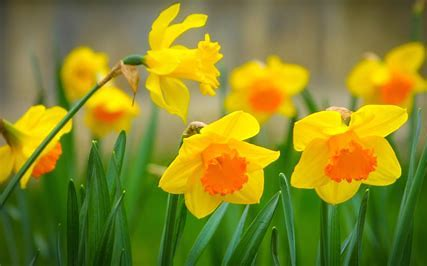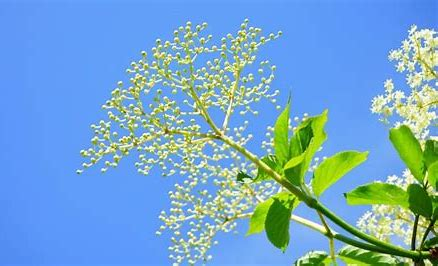In addition to the heart, not in addition to things. Something you can't refuse, can't except it; But what the heart wants to remove, the heart does not go up. Our era is a fast-paced era, we are very busy every day, and often feel regretful, busy at the end of the year, the Chinese New Year dinner, think about this year is very busy, and then think, what is busy? And found out that nothing happened. I wasted a year. Two feelings came out at the same time: really busy, but busy for a year and don't know what to do. Buddhism teaches us not to do in addition to the heart, the heart does not go up. The body can be busy, the heart is not busy, that is busy heart is not busy. Now a lot of the situation is reversed: he doesn't have much to do; he is not busy in body, but busy in mind. For example, today's white-collar workers, he is always very busy, overtime work, boring ah...... Heart does not go up, you are not busy. Anyway, think good, today is to go, nine to five, eliminate good back. There are many things one must do in this world. Buddhism is said to be a pastime, so do things. Taoism says that when we do things, we should try to remove the subjective, ego factor. Confucianism says that this should have been done, because we do not live alone in this world, we are in a certain relationship with others, and the realization of our individual ideal of life cannot be separated from the relationship with others. Therefore, we want to establish ourselves as human beings, and we want to achieve ourselves as masters. This matter, as long as it is a matter of establishing people and talents, I will also be in it, and do it well. It is not a means, but its own purpose, which is Confucianism. By combining Confucianism, Taoism and Buddhism, Chinese philosophy solved a basic problem: how to achieve the unification of the world and the world, or to use our most common words today: how to achieve the unification of romanticism and realism. It is a basic understanding that one should first have the spirit of transcending reality and then come back to do things in real life. We have just given the principles of the three schools of Confucianism, Taoism and Buddhism in general. Now let's look at the first step: how to be born? Let me give you a passage from Book 45 of the Tripitaka, which contains a text called The Theory of Treasure. "For example, there is a man in the gold closet. Always look at the body of gold, do not see the public. The sight of others is gold. Neither confused by the phase, that is, separated. Always look at the gold body, there is no false. And so it is with the real person." There is a warehouse, which is full of all kinds of gold objects, gold bowls, gold chopsticks, gold necklaces, gold rings, gold bars, and so on, a whole warehouse. A man went in. What did he see? If we go in, what we see is a variety of faces: this is a ring, this is a bowl, that is chopsticks...... That man is different. He sees the gold itself, the body of gold. The difference of all kinds of gold is the appearance. He does not look at faces, that is, he does not look at people. Of course he saw the difference, but it was all gold in his eyes, and he could not be deceived by the appearance. Such people could be called real people. What does this paragraph mean? If you walk up to me with a Louis Vuitton bag, I look at it, oh, the world's top brand bag, and then I look at my own bag, and it's not a bag -- it's still a bag. Why is it so hard for us to get ahead of reality? What is blocking the way to transcendence? We are affected by the difference of phases. The difference is so real: you do minister, I am still a small clerk, the difference is really quite big. It's real, it's objective, but we're stuck on this objective distinction. This objective difference, we ordinary people know to be true. But real people? He is blind to the masses, always looking at gold. Here's the difference. We want to go beyond the reality of the road, called birth, the first step is: to sublate the difference. The difference, indeed, is what our senses see. We see the necklace differently from the ring, but we also have another ability to see gold itself. Kim himself, how did he see it? King is not what the eye sees. When you see the gold body, it is your heart that sees it. Your eyes can see the organ, the heart can understand the body. A real person can see the real thing in the midst of all the differences in reality, just as he can see the gold itself in the midst of all the gold objects. But where is the body of gold without the vessel of gold? There is no gold but gold, is there? Gold is either a gold bar, or a gold bowl, or a gold ring, take out the gold alone, can you get it out? Can't get it out. It can't get out of the device. This shows that it is our heart that sees the body of gold, but what the eye sees is not false. It is called an organ. The body can't exist without the organ. There are several meanings here, a little philosophical speculation in it. First, the body is perceived by the mind. Second, the body cannot leave the organ. Third, the mind can see the body, so the body that is seen is the same thing as the mind. Huineng was right. Huineng said, "Buddha's dharma is in the world, and leaving the world to seek bodhi is just like seeking rabbit horns."

The Dharma, the truth of Buddhism, is not separated from the world, just as gold is not separated from gold objects. You have to be enlightened, not divorced from the real life, but the real life of various different aspects of you can not be enlightened, so the following thing is our own business: view the body with the mind. In this way, mind and body are united into truth. Everyone has Buddha-nature, and the Buddha-nature itself is in the real world, just like gold in gold objects. It depends on whether our mind can discover it or not. And the mind that discovers it is not an ordinary mind, not the mind that follows each other. Our reasoning then takes an interesting route: gold is found in gold objects, gold cannot be separated from gold objects, and gold can only be perceived by our hearts, so is not gold our hearts? The gold body, the heart in which we perceive gold, is the same thing. In this way, we can probably understand the saying that the mind is the Buddha. The true meaning of life is what we are. Truth is everywhere. It's in everyday life. From the distinction of various forms and instruments, we can see the true meaning in the common truths. This path is the road to the world. We are born with this heart, we are born with this heart, so the use of this heart is key. That heart was there, in the child's heart, called childlike innocence. Childlike innocence view things, and we adults view things is not the same. Adults pay attention to the difference between things, the child can see beauty in a small thing, he may even find the wings of a fly is beautiful. Adults hate flies because they are dirty insects that transmit bacteria, which is why they are not. Confucianism recognizes the childlike innocence, while Buddhism says we have Buddha nature. What is the process of our growth? Is our heart to go outward, outward to seek, out of the heart, out of it is the process of our growth. We walk farther and farther, seeking for things outside, being pulled and dragged by the differences between things, pulling further and further away.
